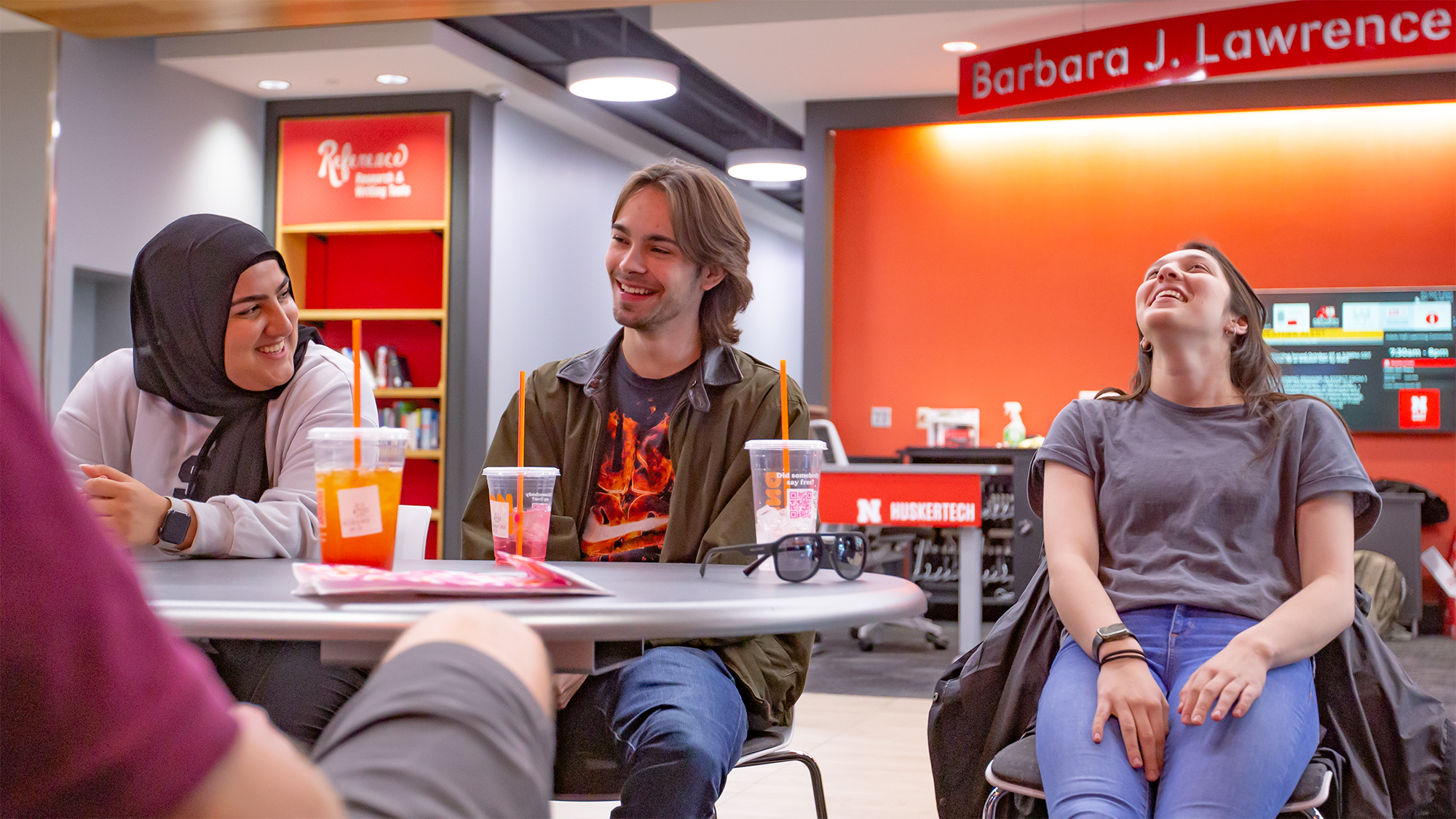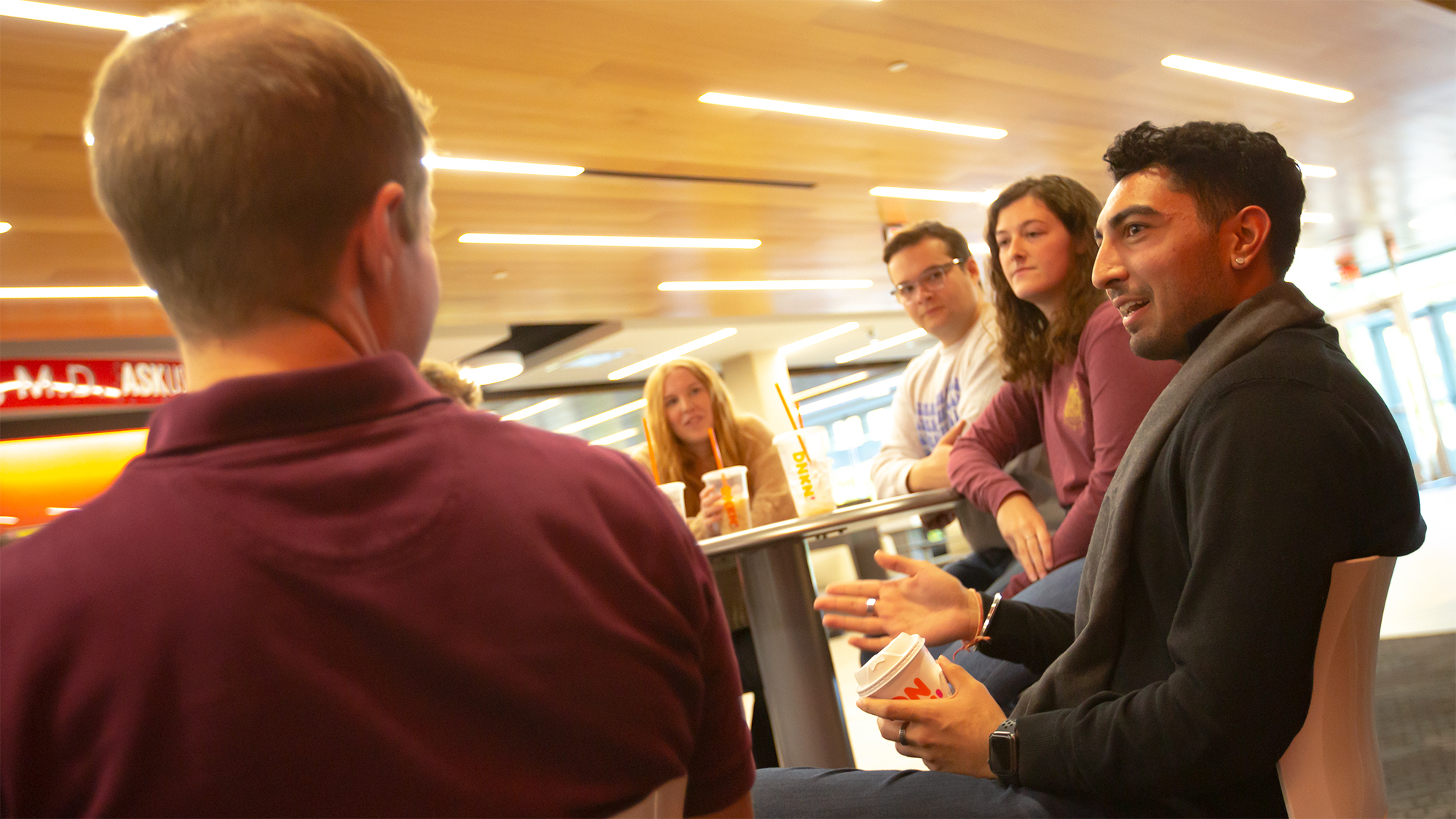
Marusha Ather’s academic and professional goals are decidedly modest.
The senior in biological systems engineering just wants to pursue a medical degree. And hopefully a doctoral degree. At the same time, naturally.
Entering an M.D.-Ph.D. program to become a physician-scientist, she figures, is the best way to research and eventually implement stem cell therapies for those like her younger brother, who has autism.
“I’ve always been interested in that area of biomedical engineering,” Ather said.
So, during her sophomore year at the University of Nebraska–Lincoln, a few of Ather’s professors suggested she apply to the INBRE scholar program — a two-year, scholarship-covered experience for undergraduates looking to embark on careers in biomedical research.
Funded by the National Institutes of Health and established at the University of Nebraska Medical Center in 2001, the program gives undergrads from institutions around the Cornhusker State the chance to join research labs at Nebraska U, UNMC or Creighton University. Undergrads accepted into the program conduct research for 10-plus hours a week throughout the fall and spring semesters of their junior and senior years. In the summers before and after their junior year, they get a more intensive experience: 10 weeks, 40 hours per week, in labs of their choice.

Most recently, Ather has been researching in the lab of Angie Pannier, the Swarts Family Chair in Biological Systems Engineering at Nebraska. Given Pannier’s own interest in stem cell research — especially the delivery of therapeutic genes to those cells — Ather has found a fit in the lab, where the “amazing working chemistry” of its graduate-level researchers helped her acclimate in a hurry.
“Not only does it give me a lot of knowledge about science in general,” said Ather, who aims to graduate in the spring, “it’s also teaching me … the little things that they don’t really teach you about in a textbook, which includes teamwork, work ethic, things like that.”
Not every Husker sophomore, even one drawn to biomedical research, has mapped out a future career in as much detail as Ather. Fortunately, the INBRE program doesn’t expect or need them to. In fact, Pannier and Brian Couch, who co-direct INBRE at Nebraska, encourage the undergrads to consider and research in multiple labs across their two years.
They don’t want for options. At Nebraska alone, students have researched in labs dedicated to biological sciences and chemistry and biochemistry, to nutrition and food science and animal science, to psychology and plant pathology, to engineering of both the biological and the mechanical.
“For students interested in biomedical research, they see the INBRE program as a vehicle to start down that road,” said Couch, associate professor of biological sciences. “What’s nice about it is that we can support them and help them navigate that process.
“But pairing with a faculty adviser often occurs organically, just based on students’ interests and them finding a research lab that excites them.”

Many of the Husker participants, Couch said, decide to spend their first summer at UNMC. Ronit Gandhi, the first in his family to attend college, began by researching pancreatic cancer in the lab of UNMC’s Michel Ouellette. It was there that he especially came to appreciate the $16,500 in stipends that INBRE students receive across the program — $4,000 of which goes to covering food and other expenses, with additional support for housing, during that first summer.
“With INBRE, it seems like they really care about making sure that research is what you’re there for, rather than just trying to survive (financially),” Gandhi said.
Later, he joined the lab of Nebraska U’s Tomáš Helikar, who is working to create a digital twin of the human immune system. As a double-major in biochemistry and mathematical biology, Ronit has applied his burgeoning quantitative skills by modeling various aspects of immunology and virology. But he’s also assisted with studies that have him spending time in a “wet lab” — the sort that involves handling liquids, chemicals and biological material — which he’s enjoying more than he ever would have guessed.
“Because of how long I’ve been in the lab, and the reputation that INBRE has, I’ve gotten to go in and be treated more like a Ph.D. student than an undergrad — designing experiments, coming in on my own time, stuff like that,” Gandhi said. “That sense of independence, it’s game-changing.”

Each summer concludes with a conference in Nebraska City, where the INBRE scholars from all three institutions present their recent work. INBRE alumni, meanwhile, often return to give talks and offer glimpses of potential paths ahead. Couch estimates that roughly 75% of the recent Husker INBRE alumni have landed in doctoral programs, whether studying chemical biology at the University of California, Berkeley, researching molecular biology at Princeton University, or tackling an M.D.-Ph.D. at The Ohio State University. Several have stuck around to pursue their doctorates in Lincoln.
As outstanding as those earlier cohorts were, Couch said the current scholars are at least as impressive as any he’s met since joining INBRE in 2019.
“You work with them,” he said, “and you just think, ‘These are really amazing students. They’re going to change the world.’”
Interested second-year students can learn more and apply to the INBRE scholar program here. Applications are due by Dec. 15.









